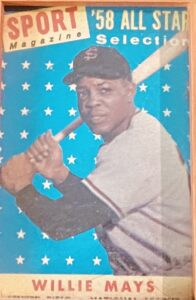By Bob Gaydos

How will AI affect knowledge workers?
I accidentally (by not being in charge of the remote) wandered into a YouTube Ted Talk by Cathie Wood the other day and, realizing I was a hostage, I half-listened for a while.
Wood is founder and CEO of ARK, an investment company that in recent years has made her millions as well as making her the darling genius of every stock market/investment show on regular TV and YouTube. Tesla was her not-so-secret word. She’s soured on Nvidia. But that’s not what grabbed my attention this night. This talk wasn’t about what stock to buy. It was about artificial intelligence. AI.
“Did she just say ‘knowledge workers,’?” I asked the person in charge of the remote.
“Uh huh.”
“What the heck are ‘knowledge workers’?” I said quietly to myself, so as not to disturb anyone actually listening to the talk. Google will know.
And it did.
A variety of Human Resources sources told me pretty much the same thing. “Knowledge work” requires a high degree of cognitive skill, competence, knowledge, curiosity, expertise and creativity in problem-solving, critical thinking, gathering data, analyzing trends and decision-making. The work involves solving issues, making judgments. Applying knowledge.
It sounded important.
“Heck,” I thought to myself, “I was a knowledge worker.”
One source# confirmed that with this list of professional knowledge workers:
- Accountant
- Computer Programmer
- Consultant
- Data/Systems Analyst
- Designer
- Engineer
- Lawyer
- Marketing/Financial Analyst
- Pharmacist
- Physician
- Researcher
- Scientist
- Software Developer
- Web Designer
- Writer/Author
There I was. At the bottom of the list, but it was alphabetical. I was and still am a knowledge worker, at least in the words and world of Cathie Wood and all those other CEOs of hedge funds and Big Tech companies.
I used to be content being identified as a newspaperman or journalist. It was simple and understandable to everyone for about half a century. I wrote stuff to let people know what was going on in the world and maybe help them make sense of it. I tried.
But the Internet introduced a new brand of people doing the same thing. Sort of. First, there came “influencers.” These are people who post information on social media platforms for others to view or read and react to. Well, I did that. Still do. But I didn’t get any contracts from companies to push their jeans or sneakers or other products. I guess I was not a very influential influencer.
Then came the most insulting of all terms, the one so many professional HR people on Linkedin seem to be looking for daily: “Content creators.”
The operating philosophy here seems to be, “We don’t really care how good or accurate or timely or well-written or even creative your content is, as much as we care that there’s enough of it to occupy our platform daily. Click bait is acceptable.”
Some of the “content” is readable. Much is not, at least in the judgment of this knowledge worker.
However, the salient point in this discussion is not so much who is or who is not a knowledge worker, but rather, is this a job title in danger of disappearing, not because the titans of industry have figured out yet another way to label mere mortals in a condescending manner, but because their seemingly vital jobs will be filled by computer chips.
Wood, remember, was talking about AI. The question being, how will AI affect the need for all these knowledge workers in the future? Can these big firms save a bundle of money by having AI do the work of knowledgeable, creative people who are good at solving problems and decision-making?
To which I reply, “How can such a knowledge worker today even recommend a change that may eliminate his or her job?”
AI is far from there, as anyone who watches some of the prepared programming on YouTube about how to make your life better, or what country to move to or Medieval history is aware. The content is often comparable to a poorly written fifth-grade essay plagiarized from a variety of sources and a “narrator” who often can’t pronounce the words correctly.
It’s clear no human had a hand in presenting this program and, apparently, no human ever bothered to edit it to make it less amateurish. Because, you know, money saved. The lure of AI.

Cathie Wood
But this is just the beginning, as Wood reminds us, and the Big Techs will go as far as they can, unless someone (Congress?) says “That’s too far.”
The HR specialists I found in my knowledge worker capacity noted that “knowledge work” is intangible. This means it does not include physical labor or manual tasks. But if you work with your hands and you’re good at it, don’t get too cocky regarding artificial intelligence and your future. Wood has another scary word in her vocabulary: Robots. She loves them.
Now, to be fair and thorough, I must note that there’s also another word that has been applied to people who do what I do, which included writing daily newspaper editorials for 23 years: Pundit.
Here’s how Wikipedia, defines it: “A pundit is a learned person who offers opinion in an authoritative manner on a particular subject area (typically politics, the social sciences, technology or sport), usually through the mass media.”
I’m not trying to beef up my obituary, but I think that fits me and this pundit suggests that other knowledge workers pay close attention when millionaire influencers like Cathie Wood start talking about replacing them with computerized content creators. Eventually it won’t be just rising stock prices and amateurish YouTube shows.
And that’s my Ted Talk today.
(# Much of the information on knowledge workers in this column is from a piece by Robin Modell for Flexjobs. She is an experienced journalist, author and corporate writer and a contributor to the On Careers section of U.S. News & World Report. Clearly, a knowledge worker.)
rjgaydos@gmail.com







